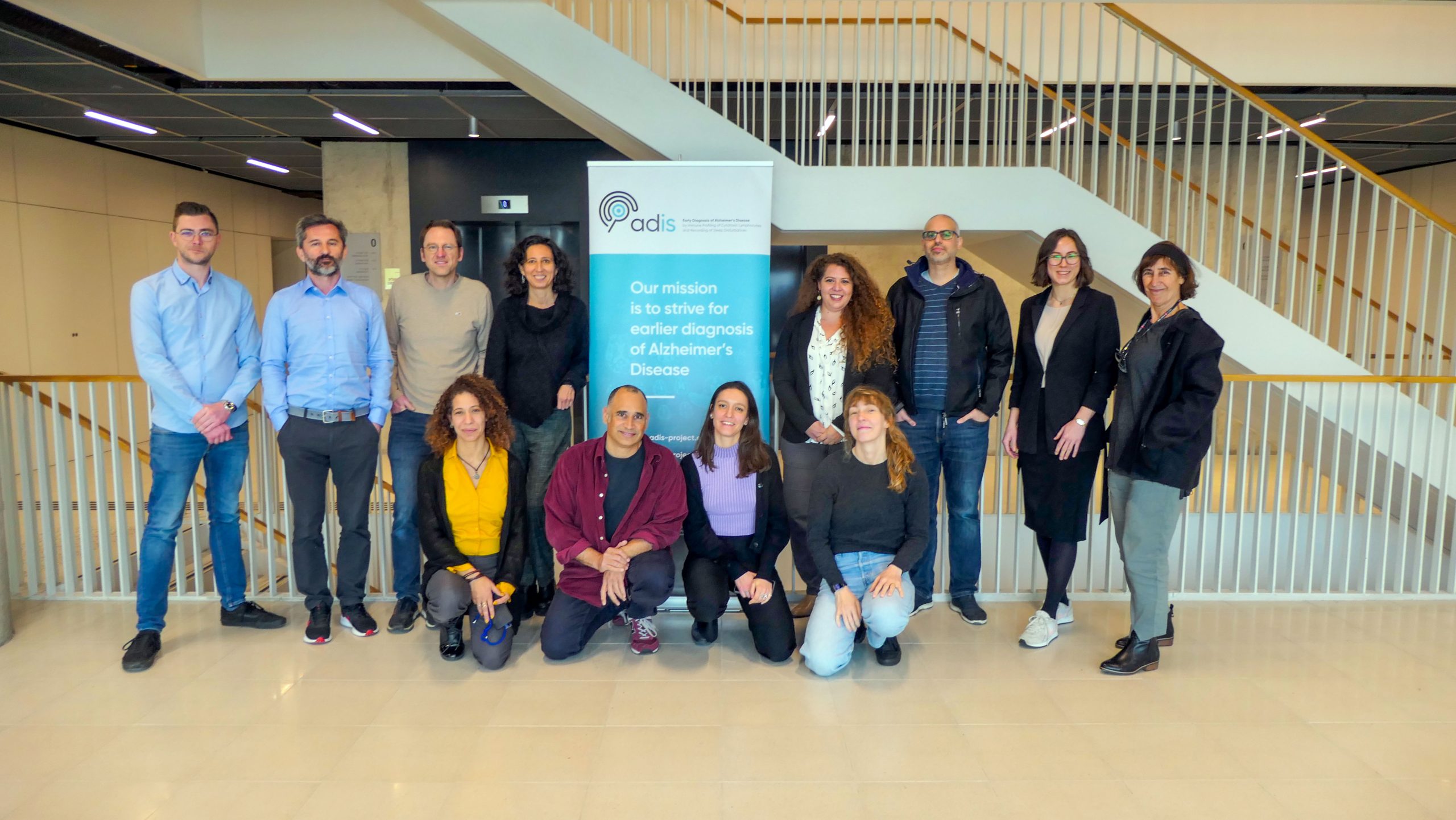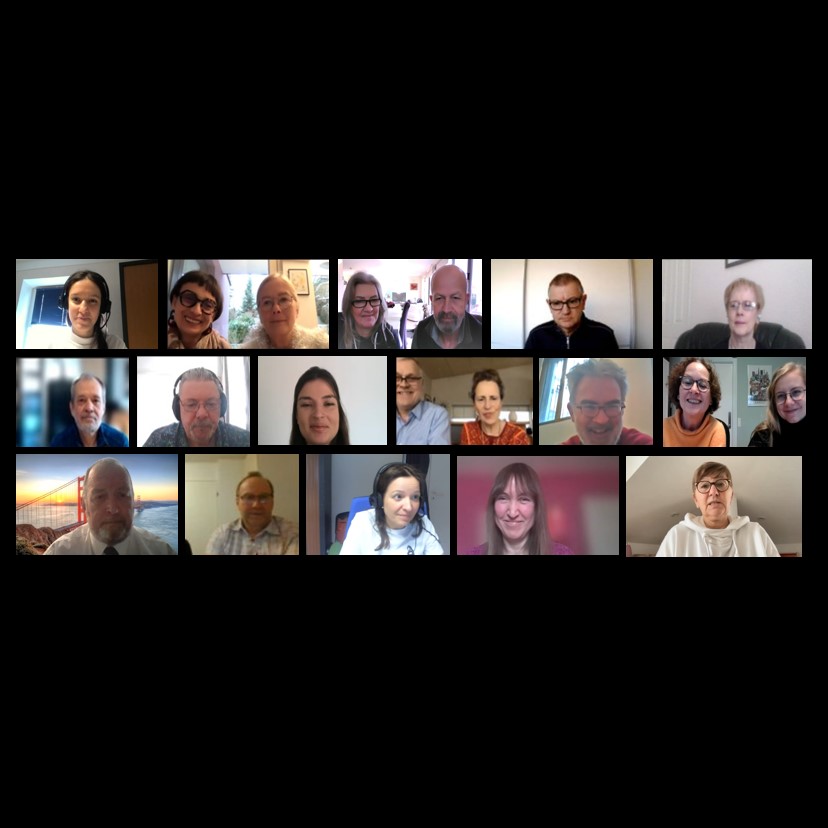From 31 January to 1 February (Tel Aviv, Israel and online), partners from the ADIS project met for their biannual General Assembly meeting.
The “Early Diagnosis of Alzheimer’s Disease by Immune Profiling of Cytotoxic Lymphocytes and Recording of Sleep Disturbances” – short ADIS project – is a JPND-funded 1.3 million EUR three-year project, coordinated by Fraunhofer SCAI.
The goal of ADIS is to thoroughly characterise the role of peripheral blood cytotoxic lymphocytes as potential markers for the early prediction of Alzheimer’s disease, and to investigate the influence of digitally assessed sleep disturbances on these markers.
The project meeting kicked off with opening remarks by project coordinator Prof. Holger Fröhlich (Fraunhofer SCAI), as well as meeting host and project collaborator Prof. Uri Nevo (University of Tel Aviv) welcoming all participants and providing an overview of the agenda for the two-day meeting.
Next, Vanessa Lage-Rupprecht (Fraunhofer SCAI), provided an overview of the latest work with regard to project management and the progress in terms of reporting, noting that all of the tasks are on track. This was complemented by Christophe Bintener (Alzheimer Europe) with an introduction to the work done for the dissemination and communication tasks for ADIS, including an introduction to the brand identity, website, project channels, Alzheimer Europe’s network that will be leveraged to support the visibility of the research efforts, concluding with an overview of future work such as a project clip.

After that, Raquel Sánchez-Valle (Fundació Clínic per a la Recerca Biomèdica) provided an update with regard to the ongoing work focussed on experimental approaches as well as data collection. The ethics approval was already received in May 2022, and 15 participants have been enrolled in the study. Raquel then provided an overview of the sleep data that is being collected, this was followed by a discussion focused on the material transfer plans among study partners.

Hereafter, Prof. Anat Mirelman (Tel-Aviv Medical Center) gave a special lecture on markers in neurodegenerative diseases, introducing the current state of knowledge as well as future research directions before the lunch break.
The afternoon focused on an overview of plans for data analysis and modeling presented by Sophia Krix (Fraunhofer SCAI), where she introduced research questions that are focused on the use of data from pre-existing studies and the use of Artificial Intelligence to disentangle the dependencies between variables to better understand Alzheimer’s disease and how that could be set up through an innovative modeling approach.
The day concluded with a dinner in Goshen.
 The second day kicked off with a special lecture by Prof. Michal Schwartz (Weizmann Institute of Science) who spoke about the role of the immune system in brain function and repair.
The second day kicked off with a special lecture by Prof. Michal Schwartz (Weizmann Institute of Science) who spoke about the role of the immune system in brain function and repair.
Last but not least Soraya Moradi-Bachiller (Alzheimer Europe) spoke about the set up of an Advisory Board comprised of five people (living with Mild Cognitive Impairment due to Alzheimer’s disease) from Spain who participate in Spanish consultations as well as members of the European Working Group of People with Dementia who participate in English consultations. The consultations currently focus on the informed consent process in research projects with the aim to lead to the development of guidelines on how to design a participant information sheet and informed consent form for research studies on Alzheimer’s disease in a user-friendly and understandable way. These guidelines are aimed at researchers.
After that, partners discussed a potential publication and held round table discussions. The meeting was then formally closed by Holger Fröhlich who thanked all attendees for their contributions and the lively scientific exchange.
The following day, project partners traveled to the Dead Sea and visited Masada as part of a social day including a guided tour.






